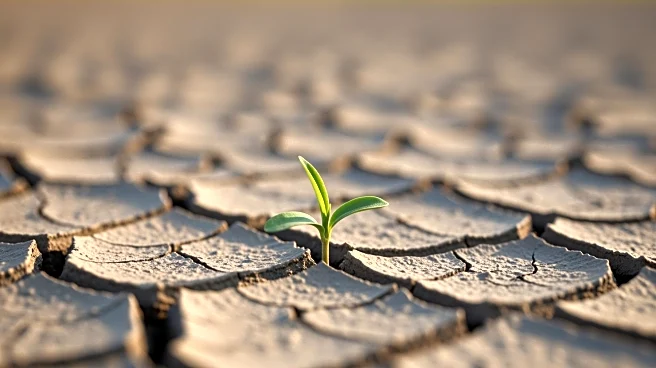What's Happening?
A new report from the Food and Agriculture Organization (FAO) reveals the severe impact of climate-driven disasters on global agriculture and food systems. Over the past 30 years, these disasters have resulted in agricultural losses amounting to $3.26
trillion, representing 4% of global agricultural GDP. The report emphasizes the need for digital agriculture solutions to manage risks and improve resilience.
Why It's Important?
The findings of the FAO report highlight the urgent need for countries to adopt digital technologies in agriculture to mitigate the effects of climate change. The report underscores the widening gap between nations that can leverage these technologies and those that cannot, particularly in Asia, which faces significant agricultural losses. The implications for food security and rural economies are profound, affecting millions of livelihoods.
What's Next?
Countries like Pakistan, which are heavily impacted by climate-induced agricultural devastation, may need to develop national strategies to integrate digital agriculture solutions. This includes crop mapping, AI-based pest surveillance, and disaster-indexed insurance. Policymakers must prioritize investment in technology to build resilience and ensure food security.
Beyond the Headlines
The report raises ethical and policy questions about the global response to climate change and its impact on agriculture. The disparity in technological access could lead to increased inequality and social instability. Long-term shifts in agricultural practices and international cooperation may be necessary to address these challenges.















